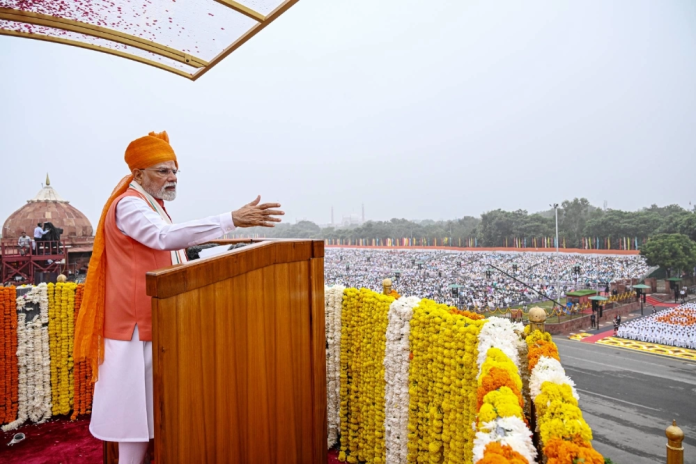Share prices across India’s motor industry surged following reports that the national government aims to significantly reduce taxes on small cars and insurance premiums, according to Reuters.
The move forms part of a sweeping overhaul of the Goods and Services Tax (GST) system, announced over the weekend by Prime Minister Narendra Modi’s administration. The proposed reforms, potentially the largest since 2017, are expected to lower consumer prices from October, pending approval.
A government source directly involved in the matter confirmed that the federal government has proposed slashing GST on small petrol and diesel cars to 18% from the current 28%. Concurrently, the consumption tax on health and life insurance premiums may be reduced to 5%, or even eliminated entirely, from the existing 18%.
This news triggered a substantial market rally on Monday. Shares in Maruti Suzuki, India’s leading small petrol car seller, jumped nearly 9%, spearheading gains in the auto sector. This surge contributed to a 1.3% rise in the benchmark Nifty index, marking its strongest performance in three months.
Other beneficiaries, including carmaker Mahindra & Mahindra and motorbike manufacturers Hero MotoCorp and Bajaj Auto, saw shares climb between 2% and 4%. Insurance firms ICICI Prudential, SBI Life, and LIC also recorded gains of up to 5% before settling slightly lower.
Targeting small car segment
The proposed tax cuts arrive as sales of small cars – defined as petrol vehicles with engines below 1200cc, diesel vehicles below 1500cc, and not exceeding four metres in length – have significantly slowed. Buyers are increasingly opting for larger, feature-rich SUVs.
Industry data indicates that small cars constituted just one-third of the 4.3 million passenger vehicles sold in India last fiscal year, a steep decline from nearly 50% before the pandemic. This segment represents half of Maruti Suzuki’s sales.
The company, majority-owned by Japan’s Suzuki Motor, has seen its market share fall from over 50% to around 40% in the last five years as models like the Alto, Dzire, and Wagon-R lost popularity. Carmakers Hyundai Motor India and Tata Motors are also positioned to gain from the tax reduction.
Government officials outlined plans to simplify the GST structure to just two primary rates: 5% and 18%, abolishing the highest 28% slab. However, a new 40% rate would apply to a select group of five to seven “sin goods,” including tobacco products and luxury items. The final approval rests with the GST Council, chaired by the federal finance minister and comprising representatives from all states, with a meeting anticipated by October.
The proposed GST reduction on insurance premiums targets a sector where penetration remains low, at just 3.8% of GDP in 2024 according to Swiss Re Institute. Insurers anticipate that lower taxes will make products more affordable and stimulate sales.
For larger cars with higher engine capacities, currently facing 28% GST plus an additional levy of up to 22% (totalling around 50% tax), a new special rate of 40% is proposed. The government source indicated that officials are finalising details to determine if any supplementary charges over 40% are necessary to maintain the overall tax incidence for these vehicles within the existing 43%-50% range.
